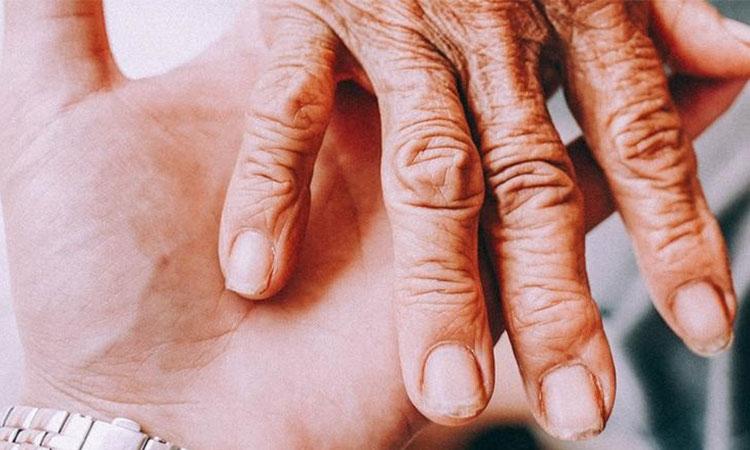Rheumatoid Arthritis (RA) is a chronic inflammatory disease wherein your immune system mistakenly attacks healthy tissues of the body causing inflammation. In RA, joints of the hands, wrists, feet, and knees are mainly affected. Typically, the disease causes your joints to swell and shows an array of symptoms including joint pain and stiffness. RA affects the lining of the joint called synovium, causing inflammation of the synovium, and destruction of the joint cartilage, leading to chronic pain and deformity.
If not treated early, the effects of RA can go beyond your joints and may spread to other parts of the body such as the lungs, heart, and eyes.
What complications can RA cause in different organs?
When RA is not treated properly it can lead to a host of serious complications and can develop in several organs including lungs, eyes, skin, and heart.
Lungs - Rheumatoid Arthritis can cause interstitial lung disease that presents as chronic cough and breathlessness during exertion. Airway involvement can also lead to reactive airway disease and bronchiectasis.
Also Read | Works from the Collection of Jane Fonda
Eyes - When you get diagnosed with Rheumatoid Arthritis, you can feel severe dryness or inflammation in your eyes. If you often have dry eyes, it is recommended to get them checked by a doctor and get them properly treated.
Skin - Skin rashes, and ulcers on arms and legs can be seen among people suffering from rheumatoid arthritis.
Heart - Long-standing untreated rheumatoid arthritis can put patients at a 2-fold risk of developing cardiovascular disease and strokes.
What are the signs and symptoms of Rheumatoid Arthritis?
The signs and symptoms of RA include pain and swelling in multiple joints, severe early morning stiffness in joints, joint tenderness, weight loss, fever, fatigue, weakness, and tiredness. Since RA is a progressive disease, these symptoms typically get worse. However, with timely treatment, the progression of RA can be managed effectively.
What causes RA?
While the exact cause of RA is unknown, certain factors like age, sex, genetics, and illicit habits like smoking, pregnancy, and obesity can increase the risk of developing the disease.
Even though RA can begin at any age, its incidence increases with age. The onset of RA is highest among senior citizens of the age group 60 years and above. People with a genetic background of RA, smokers, and people who are obese are also at a higher risk of contracting RA.
Several studies have also indicated that women are more prone to develop RA than men and carry a 2-3 times higher risk. These studies have also highlighted that women who have never given birth or have late pregnancies are also at a greater risk of developing RA.
How is RA diagnosed and what is the treatment method?
If you have the signs and symptoms of RA, you should consult a doctor (Rheumatologist) who will diagnose the disease by reviewing your symptoms, conducting a physical examination, and doing X-rays and lab tests. It is recommended that you get it diagnosed within 6 weeks of the onset of the symptoms, to stop or slow the progression of the disease. Early diagnosis and treatments can suppress or control the inflammation that can help in reducing the damaging effects of RA.
The treatment of the disease involves the use of medications called disease-modifying antirheumatic drugs (DMARDs) that slow the disease and prevent joint deformity. Biologic DMARDs are an effective second-line treatment. Additionally, people can also adopt several self-management strategies that can reduce pain, prevent disability and allow them to pursue the activities that they want to engage in.
How can you manage RA and improve your quality of life?
While RA can significantly affect your daily living, fortunately, there are multiple strategies through which you can improve your quality of life:
Physical Activity - Getting moderate physical activity for 150 minutes per week, like walking, swimming or cycling for 30 minutes a day for five days a week can not only improve your quality of life but can also reduce your risk of developing other chronic diseases like heart disease, diabetes, and depression.
Participate in self-management education class - You can gain confidence by participating in such classes as they will provide you with information on how you can control the symptoms, and live well with the disease.
Quit Smoking and Maintain a Healthy Weight- Cigarette smoking can make the disease worse, reduce responsiveness to medications, and can further increase the risk of cardiovascular disease. Hence, quitting smoking, engaging in regular physical activity, and maintaining a healthy body weight can have a positive impact on you and can help you manage the condition better.


















